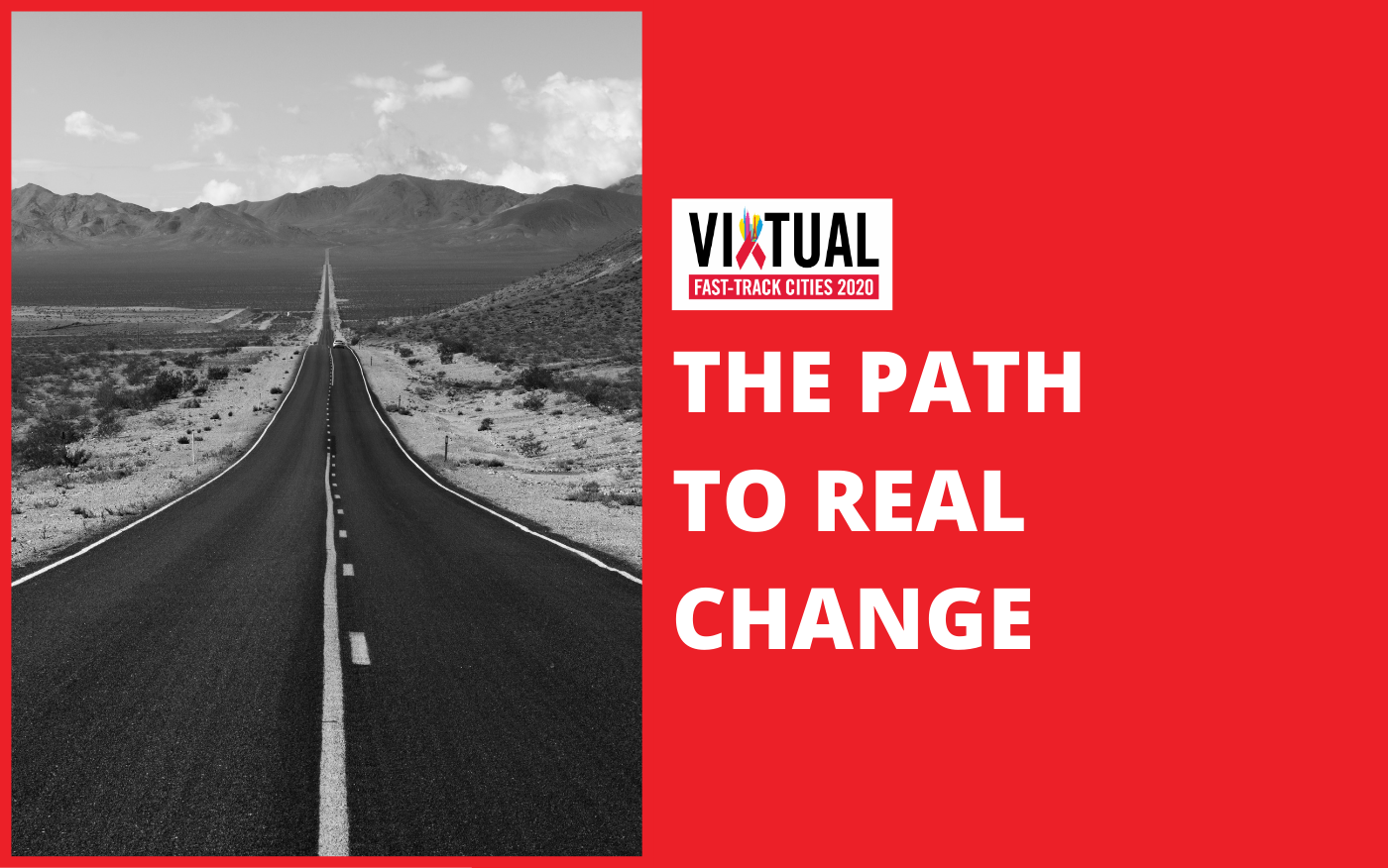“We are losing ground against HIV, TB and viral Hepatitis, because resources are being diverted to the global COVID-19 response…Without a holistic approach we are doomed to repeat the same mistakes while preventable new infections and needless deaths occur…We should limit the implementation of predominantly COVID-19-only solutions. Instead, we need comprehensive and integrated interventions,” said Solange Baptiste, Executive Director of the International Treatment Preparedness Coalition (ITPC Global).
Baptiste was speaking on the closing panel of the Virtual Fast-Track Cities conference, hosted by the International Association of Providers of AIDS Care (IAPAC), on September 10, 2020, where she issued a strong call to address the root causes of disease outcomes.
“Social determinants of health are a major driver of morbidity and mortality as the world grows more and more unequal. We need to address the causes of risk, vulnerability and transmission at a structural level and remember that people are not high risk, situations are…What accounts for the fact that black people are four times more likely to die from COVID-19 than white people? Even if biological differences play a role in health, inequalities, systemic racism and other social factors have a huge impact, and we can address them.” said Baptiste.
The two-day virtual Fast-Track Cities 2020 conference explored the fragility of HIV, tuberculosis, and Hepatitis C responses revealed by COVID-19. The conference kicked- off on September 9 with a high-level panel of mayors, followed by a keynote address by Dr. Anthony Fauci, head of the US National Institute of Allergy and Infectious Diseases.
In Baptiste’s five-point call to action, she called the current global health system too “old-guard, colonial, paternalistic, over-medicalized, and top-down to safeguard the gains of the past decades for HIV, Tuberculosis and Hepatitis C”.
The path to real change lies in building localised and people-centered health responses. Globally, social factors such as stigma remain a pervasive and lethal barrier to health despite medical advances. “We have to seriously tackle stigma…Stigma blooms in environments of low health literacy, misinformation and disinformation, yet we scrape the bucket to find funding for this work.” said Baptiste.
In addition, Baptiste highlighted how countries without free or affordable healthcare systems put their citizens at risk. “We have to address affordability head on…We know in our gut that quality healthcare should not be linked to having a job or determined by market forces,” she said, adding, “We need to build community systems, and build them to be more resilient to future shocks. COVID-19 is just the start, given the state of our world.”
The closing panel, facilitated by José Zuniga, the President of IAPAC, featured other global public health leaders, including:
– Ren Minghui, Assistant Director-General for Communicable Diseases, World Health Organization (WHO)
– Shannon Hader, Deputy Executive Director of Programme of the Joint United Nations Programme on HIV/AIDS (UNAIDS) and Assistant Secretary-General of the United Nations
– Peter Sands, Executive Director, Global Fund to Fight AIDS, Tuberculosis and Malaria
– Ricardo Baptista Leite, President and Founder of UNITE
– Angeli Achrekar, Principal Deputy U.S. Global AIDS Coordinator, U.S. President & Emergency Plan for AIDS Relief (PEPFAR)
The closing panel @Fasttrackcities 2020 discussed:
✔️keeping gains earned from HIV response
????????????the importance of community led monitoring
❤️health is wealth & we need to invest in it@ITPCglobal @UNAIDS @UNITE_MPNetwork @GlobalFund @PEPFA @IAPAC pic.twitter.com/lE4AyU5eZl
— ITPC Global (@ITPCglobal) September 10, 2020
Baptiste’s message resonated with participants online and with the other panelists, some referencing her in their respective remarks.
“When we talk about ‘community-led roles’….it’s not just about civil society—and I think Solange said this earlier—it’s about organisations and networks led by people affected by the condition, for people who are affected…How do we ensure that community-led organisations are key actors, players and interventionists?,” Hader said.
Achrekar of PEPFAR also highlighted the role of communities in confronting pandemics. “If COVID-19 has any silver lining at all, we would say that we’ve learned some lessons, important lessons that I think became more apparent in the HIV response because it really got down to what Solange mentioned so beautifully…How do we work best to address what the clients themselves, the people, and the communities themselves need in this particular environment, to ensure that we’re protecting HIV gains?” Achrekar said.
